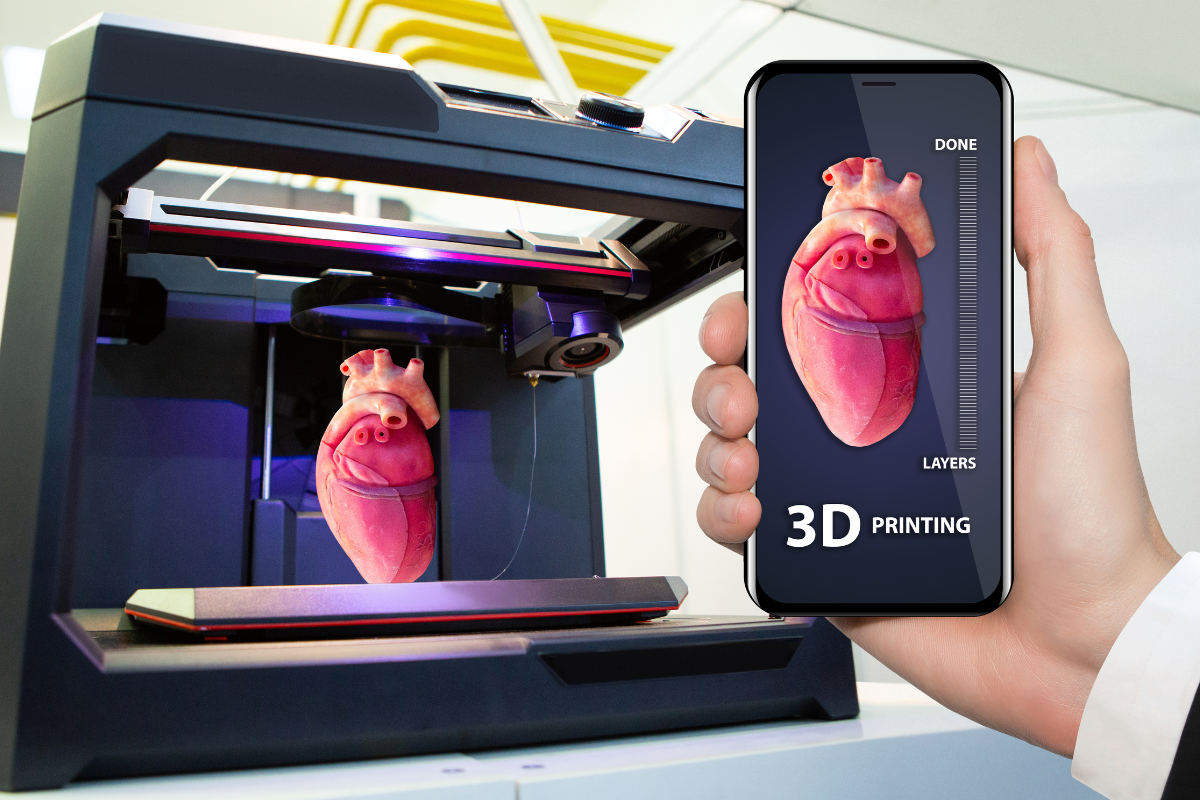Technology is growing at an unparalleled rate in today’s fast-paced world, and healthcare is no different. The healthcare industry is always developing and improving. We see new and creative health technology advancements emerge with each passing year that have the potential to revolutionize the way we think about and approach healthcare.
Advances in healthcare technology are making healthcare more accessible, efficient, and effective for individuals all over the world, from early illness diagnosis to remote care and individualized therapies. The importance of technology on healthcare is evident, and it’s critical to remain up to date on the newest advances in this sector since they will continue to change how we approach healthcare in the future.
In this article, we’ll briefly examine the top 10 health technology advancements to watch in 2023. These innovations have the potential to raise worldwide access to healthcare, lower costs, and enhance patient outcomes.
Wearable health monitors
Recently, fitness trackers and smartwatches have become fashionable as wearable health recorders. These physiological indicators track numerous body metrics, such as the cardiac cycle and resting cycles, as well as physical performance levels.
Even more developments, including ECG measurements and an emphasis on oxygenated blood measurement rate, are foreseen by 2023. Along with giving people more control over their health, this device advancement makes it simple for specialists to evaluate and map out or discover any hidden medical issues ahead of time.
Telehealth
Telehealth, or the use of technology to provide healthcare remotely, has considerably grown in recent years as a result of the COVID-19 pandemic. Thanks to remote health opportunities, patients can now receive medical consultations, diagnoses, and even treatment without leaving their homes.
Especially, for people who live in distant areas or have no ability to travel to a healthcare facility, telehealth technologies are essential. It is expected that even greater numbers of people will take advantage of this convenience by 2023, especially as medical personnel make increasing use of technological means to provide better care opportunities to patients.

Artificial Intelligence (AI)
Artificial intelligence (AI) has the potential to revolutionize the healthcare industry by making it more efficient, precise and personalized. By analyzing vast amounts of patient data, AI algorithms can identify patterns and make predictions.
The experience of a doctor is very important but sometimes making accurate predictions might be difficult for doctors. Advanced AI technology can help doctors make better diagnoses in situations where spotting details could be challenging. Thus, AI support can lead to earlier diagnosis, more accurate treatment plans, and better outcomes for patients.
For instance, AI-powered diagnostic tools can analyze medical imaging, such as X-rays and CT scans, and make recommendations for further tests or treatments. This helps doctors quickly identify serious conditions, such as tumors or infections.
AI algorithms can also help radiologists identify abnormalities in images that might be missed by human eyes. This can lead to earlier detection of diseases and patients get the most accurate care they need.
As technology continues to advance and data becomes more readily available, it is expected that AI will be increasingly integrated into various aspects of healthcare. It is likely that the use of AI in healthcare will continue to increase in the coming years.
3D Printing Technology
Another one of the health technology advancements is the usage of 3D printing in the medical field. The capability of creating individualized and patient-specific medical devices, such as prosthetic limbs, dental implants, and surgical planning models, is one of the main benefits of using 3D printing in healthcare.
Additionally, personalized medicine can be produced using 3D printing, such as by developing dosages that are specific to each patient or original drug formulations.
More advanced applications of this technology are anticipated in the future, such as the fabrication of replacement body parts and the development of medicines that are uniquely suited to each patient.
This might completely transform medical procedures, making them more specialized and effective.

Virtual Reality (VR) Technology
VR has been utilized therapeutically in a number of contexts, including the management of PTSD and phobias. As VR technology progresses and becomes more accessible, we may anticipate seeing it used in therapy on a much larger scale in 2023. This will make therapy more available to those who may not have had accessibility to it in the past and enable medical practitioners to treat patients more effectively.
Robotic Surgery
Robotic surgery has been employed in several medical procedures, including laparoscopic surgery and prostate surgery. We may anticipate even more advanced robotic surgical devices in 2023, with increased precision and shorter recovery periods. It will assist healthcare providers to execute more sophisticated and delicate surgery while also improving patient outcomes.
Quantum Computing
Quantum computing has the potential to transform a wide range of industries, including medicine. More research and development in the application of quantum computing in medicine, such as medication discovery and genomics, is expected in 2023. Healthcare practitioners will be able to make more informed judgments and give better treatment to their patients as a result of this.
Biotechnology
A rapidly growing field, biotechnology combines the expertise and methods of biology, chemistry, and engineering to develop novel medical procedures and technologies.
Gene therapy is one biotechnology area in the field that is anticipated to experience rapid growth in 2023. By inserting disease-free copies of genes into cells that have been mutated, gene therapy is a technique for treating illnesses. Previously thought to be incurable conditions like cystic fibrosis and sickle cell anemia can now be treated thanks to this.
Regenerative medicine is another area of biotechnology where expansion is also anticipated in 2023. This field of medicine uses stem cells and other regenerative methods to replace or repair damaged or diseased cells, tissues, and organs. It has the potential to treat a wide range of conditions, including spinal cord injuries, heart disease, and diabetes.
Remote Monitoring Devices
Remote monitoring technologies, such as smart home gadgets, can be used to monitor patients’ health from a distance. In 2023, we may anticipate to see more advanced remote monitoring devices with capabilities like fall detection and medication management, allowing healthcare providers to keep a closer check on their patients’ health.

Cybersecurity
With the increasing integration of technology in healthcare, cybersecurity has emerged as a key problem. In 2023, there will most certainly be a greater emphasis on cybersecurity in healthcare, as well as the implementation of more advanced security measures to secure patient data and prevent cyberattacks.
Conclusion
Finally, 2023 is shaping up to be an exciting year for health technology, with numerous new and developing technologies poised to have a significant influence in the field of healthcare. From quantum computing and robotic surgery to wearable health monitors and telehealth, these top 10 health technologies have the potential to improve patient outcomes, cut costs, and make healthcare more accessible to people all over the world. As time goes on, it will be interesting to observe how these technologies develop and adapt, and how they will ultimately alter the way we approach healthcare.
It is important to remember that health tech innovations are not aimed at replacing human healthcare professionals, but rather to assist them enhance their efficacy and deliver better care to patients. It shouldn’t be forgotten that technology has the potential to enhance patient results and make healthcare more cost-effective and efficient
With all these health technology advancements, the healthcare industry’s future is bright, and it will be intriguing to observe how they will continue to alter the business in the years ahead.

